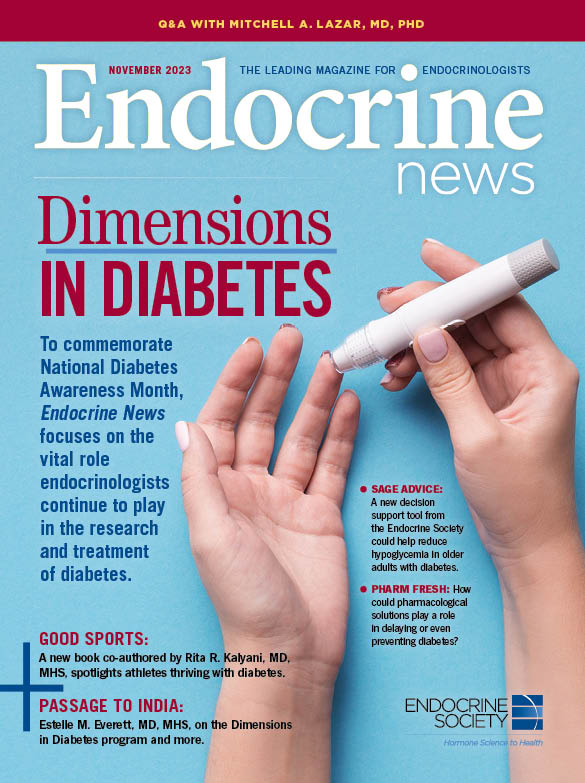For the ninth year running, Endocrine News talks to editors from Endocrine Society publications to unearth the endocrine nuggets of 2023. Here, the editors of Endocrinology weigh in on what they think qualify as the year’s biggest discoveries in endocrine science. Endocrinology Editor-in-Chief Carol A. Lange, PhD, professor of medicine (Division of Hematology, Oncology, and...
Fact Check: Endocrine Society Responds to Republican Debate Misinformation
The statement Florida Gov. Ron DeSantis made during Wednesday’s Republican presidential debate contradicts mainstream medical practice and scientific evidence. DeSantis’ comments characterizing gender-affirming care for transgender and gender-diverse youth as child abuse and genital mutilation do not reflect the healthcare landscape. Contrary to widespread misinformation, gender-affirming genital surgery is rarely offered to anyone under the...
Government Shutdown Averted for Second Time as Society Advocates to Fund Health, Research Programs With the clock running out on a federal government shutdown that was to begin midnight November 17, Congress passed a short-term bill to keep the government open. The bill will fund most health programs, including the National Institutes of Health (NIH),...
For the ninth year running, Endocrine News talks to editors from Endocrine Society publications to unearth the endocrine nuggets of 2023. Here, the editors of the Endocrine Reviews weigh in on what they think qualify as the year’s biggest discoveries in endocrine science. The endocrine Gold Rush of ’22 from last year’s issue might have...
 Márta Korbonits, MD, PhD, the 2023 Endocrine Society Gerald D. Aurbach Laureate Award recipient for Outstanding Translational Research, talks to Endocrine News about the award, her research on pituitary adenomas, and her own words of wisdom. Márta Korbonits, MD, PhD, is no stranger to the endocrine research community. As president of the Society for Endocrinology...
Márta Korbonits, MD, PhD, the 2023 Endocrine Society Gerald D. Aurbach Laureate Award recipient for Outstanding Translational Research, talks to Endocrine News about the award, her research on pituitary adenomas, and her own words of wisdom. Márta Korbonits, MD, PhD, is no stranger to the endocrine research community. As president of the Society for Endocrinology... As the weather in the Washington D.C., area starts ebbing from shorts and T-shirts to jeans and hoodies, Autumn signals its arrival and therefore, the focus of Endocrine News turns to our annual diabetes research and practice issue each November, to coincide with Diabetes Awareness Month. As usual, thanks to the plethora of research on...
As the weather in the Washington D.C., area starts ebbing from shorts and T-shirts to jeans and hoodies, Autumn signals its arrival and therefore, the focus of Endocrine News turns to our annual diabetes research and practice issue each November, to coincide with Diabetes Awareness Month. As usual, thanks to the plethora of research on... Fresh from receiving a 2022 Endocrine Society Early Investigator Award, Estelle Everett, MD, MHS, was a member of this year’s Dimensions in Diabetes program that took place in Mumbai, India, in August. She talks to Endocrine News about that program, her own research, and how the award has impacted her career. In August 2023,...
Sage Advice: Reducing the Risk of Hypoglycemia in Older Adults with Diabetes
 Hypoglycemia from overtreatment is a serious but seldom recognized complication in older adults with type 2 diabetes. A new decision support tool developed by the Endocrine Society can help primary care providers avoid overtreatment and cut the risk of hypoglycemic events in these patients. The use of a clinical decision support tool can reduce the risk...
Hypoglycemia from overtreatment is a serious but seldom recognized complication in older adults with type 2 diabetes. A new decision support tool developed by the Endocrine Society can help primary care providers avoid overtreatment and cut the risk of hypoglycemic events in these patients. The use of a clinical decision support tool can reduce the risk...
